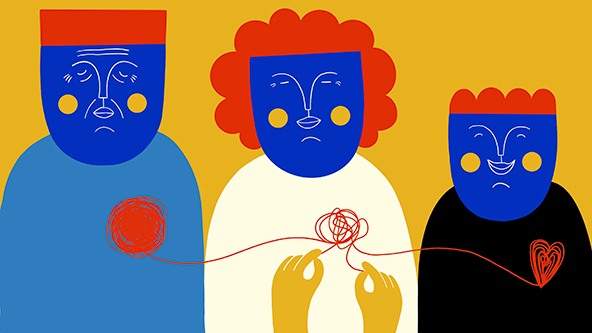Shadows of the Past: Confronting Collective Trauma in America
Austrian author and collective trauma scholar Thomas Hubl, in his 2020 book, Healing Collective Trauma: A Process For Intergenerational and Cultural Wounds, writes, “To feel the problems of our world is to know its suffering, but this requires compassionate ‘response-ability.’ If we fail to address the world’s collective trauma with clarity and compassion, we imperil the survival of our children and our children’s children—and countless other species.” What does it mean to address collective trauma beyond simple truth and reconciliation? Is it worth addressing especially if the wounds of collective trauma run so deep?
The Invisible Nature of Trauma
Trauma isn’t always easily detectable. Trauma doesn’t always show up on one’s skin or on one’s face. And if it does, it isn’t always recognized. It isn’t always recognized because perhaps due to the overexposure to trauma through various platforms, sometimes even simultaneously, one has become accustomed to not recognizing trauma or simply ignoring it. Writer Katie Rogers, in her 2016 article for The New York Times, “What Is A Constant Cycle of Violent News Doing to Us?”, writes, “the constant stream of news on social media can also be traumatic… living in a digitally linked world where broadcasts of violence are instantaneous and almost commonplace means that many of us are becoming desensitized.”
Overexposure and the Endless Cycle of Trauma
Social media is nothing new and overexposure is nothing new. But it seems as though over the past few years, there has been this feeling that America is on one continuous loop of the same incidents involving race, gender, politics, and social unrest. So much in fact that it is almost impossible to not have it affect oneself in one way or another.
Navigating Chaos and Healing from Trauma
If there is one thing one can learn from history, it is that chaos will be constant and how one navigates the chaos has more significance than perhaps the trauma itself. The tricky part about collective trauma is that everyone deals with trauma differently and everyone heals from trauma differently.
The Role of Loneliness in Collective Trauma
Shawn McCaney, in his 2024 article for Medium, “Americans Are Lonely and Disconnected. Better Civic Spaces Can Help,” writes, “Americans have never been lonelier; studies show we are more disconnected and distrustful than ever before. Many argue that we must address loneliness to counter its negative effects on our physical and mental health, but loneliness isn’t just bad for us as individuals — it’s bad for American communities.” What does loneliness have to do with collective trauma? Trauma breeds feelings of isolation and misunderstanding. Trauma breeds feelings of apathy and despair. Trauma breeds feelings of anticipation and anxiety.
Finding Connection in a Disconnected World
At a time where connection and interaction is at its easiest, many Americans feel lonely and scared. Many are left wondering: how does one heal from perpetual collective trauma?








